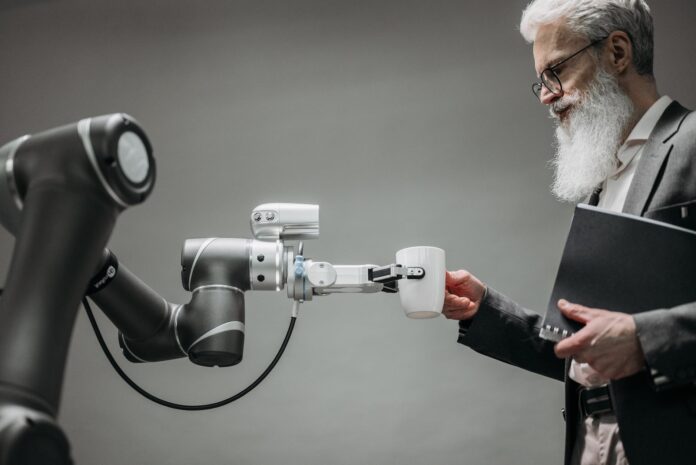
In an era marked by technological advancements, the scientific community is constantly seeking ways to enhance the peer-review process. Artificial Intelligence (AI) emerges as a promising tool, capable of improving efficiency and accuracy. But, is its use in peer review ethical? In this article, iLovePhD delves into the debate, discussing confidentiality, potential breaches, and ethical concerns surrounding AI in scientific peer review.
AI in Scientific Peer Review: Balancing Promise and Ethical Challenges
1. The Rise of AI in Peer Review
AI, an innovative technology, holds immense potential to revolutionize scientific peer review. It can provide unbiased assessments by drawing from extensive references and resources. But is it in line with confidentiality standards?
2. The Confidentiality Conundrum
Confidentiality is paramount in peer review. Reviewers are entrusted with safeguarding research proposals and applications. Using AI, which requires feeding it privileged information, can jeopardize this confidentiality. NIH’s stance is clear.
3. Ethical Dilemmas – Scenario 1
Imagine Dr. Vinoth, an experienced reviewer, turns to AI for help. He believes AI can provide an unbiased assessment. However, this seemingly innocent act is prohibited and can lead to severe consequences.
4. Ethical Dilemmas – Scenario 2
Dr. Kumar, exhausted after reviewing multiple applications, seeks AI assistance for drafting critiques. While it saves time, it’s against the rules, with potential consequences.
5. Upholding Integrity
Maintaining the integrity of peer review is non-negotiable. AI, trained on existing data, may homogenize original thought and introduce biases, undermining this integrity.
6. The Trust Factor
Scientists trust peer reviewers to protect their proprietary ideas. AI’s lack of guarantees regarding data handling poses a risk to this trust.
7. Using AI to Write Applications
Shifting gears, we discuss using AI to write grant applications. The NIH does not inquire about the authorship of an application, but AI use comes with risks.
8. AI and Research Misconduct
AI-generated content may inadvertently introduce plagiarism or fabricated citations, raising concerns about research misconduct.
The use of AI in scientific peer review raises complex ethical and confidentiality issues. While it holds promise in improving efficiency, it must be used cautiously to preserve the integrity of the peer review process. Striking the right balance between technological innovation and ethical standards remains a challenge for the scientific community.
10 Recommendations to use AI in the Scientific Peer Review process
Here are 10 recommendations for using AI in the scientific peer review process:
- Enhance Reviewer Efficiency: AI can assist in rapidly summarizing and categorizing research proposals, saving reviewers time and effort.
- Unbiased Assessment: Ensure that AI models used for peer review are unbiased and trained on diverse datasets to avoid introducing unintended biases into the review process.
- Confidentiality Protocols: Establish stringent confidentiality protocols when using AI. Only authorized personnel should have access to AI-generated content.
- AI Ethics Training: Provide training to reviewers and users on the ethical use of AI in peer review to prevent inadvertent breaches.
- Supplement, Don’t Replace: Emphasize that AI should supplement, not replace, human expertise. Reviewers should use AI as a tool for assistance, not as a substitute for their own judgment.
- Transparency: Maintain transparency regarding the use of AI in the peer review process. Disclose when AI is used in any capacity.
- Data Privacy: Ensure that AI tools used in peer review adhere to data privacy regulations and do not compromise the security of sensitive information.
- Validation: Continuously validate AI-generated assessments against human evaluations to maintain quality and accuracy.
- Accountability: Establish clear accountability measures for reviewers and users of AI in peer review to deter any potential misconduct.
- Regular Review: Periodically review and update AI guidelines and policies to align with evolving technology and ethical standards.
Implementing these recommendations can help harness the benefits of AI while preserving the integrity and ethics of the scientific peer review process.
Also Read: AI Tools for Research
